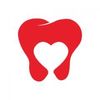
Welcome to the pediatric dental office of Augusta Pediatric Dentistry. We provide specialized dentistry for infants, children, and adolescents in a child-friendly environment right here in Augusta, GA. As a pediatric dentist and staff, we focus on preventive care to help each child have a healthy smile that will last a lifetime. Along with pediatric care, we offer extensive consultation time for the parents of the families we serve to provide detailed treatment information.
Our goal is to help families we serve in the Augusta and surrounding areas have a special "dental home" in our office. You'll find this important information and more on our website, including directions to our Augusta office, service descriptions, patient forms, and patient education resources. We are currently serving infants, children and teens in Augusta, GA and the surrounding areas of Evans and Martinez, GA and North Augusta, SC.
Preventative dental care should be practiced as soon as possible to guarantee the best dental health for your infant.
Our goal is to help families we serve in the Augusta and surrounding areas have a special "dental home" in our office. You'll find this important information and more on our website, including directions to our Augusta office, service descriptions, patient forms, and patient education resources. We are currently serving infants, children and teens in Augusta, GA and the surrounding areas of Evans and Martinez, GA and North Augusta, SC.
Preventative dental care should be practiced as soon as possible to guarantee the best dental health for your infant.
Services
All professionals at Augusta Pediatric Dentistry maintain the highest levels of accreditation and pursue ongoing education to stay abreast of the latest trends in the medical field.
Dr. Phillip H. Miller graduated from the Medical College of Georgia School of Dentistry in 1973.
He was in the first class that was accepted to the dental school.
In 1975, Dr. Miller completed his residency in Pediatric Dentistry at James Whitcomb Riley Children's Hospital in Indianapolis, Indiana.
Riley Hospital is the largest children's hospital in the world.
Dr. Phillip H. Miller graduated from the Medical College of Georgia School of Dentistry in 1973.
He was in the first class that was accepted to the dental school.
In 1975, Dr. Miller completed his residency in Pediatric Dentistry at James Whitcomb Riley Children's Hospital in Indianapolis, Indiana.
Riley Hospital is the largest children's hospital in the world.
Chrissy has been an administrative assistant with us for eleven years.
She graduated with a degree in business management from Brenau University, and has certainly brought that valuable knowledge to bear in her time at our office.
She has a vibrant energy and sincere compassion which makes the front desk a place where patients can feel comfortable and welcome.
Chrissy also enjoys working behind the scenes, making sure that everything is running as it should be.
A well-oiled machine is going to be all the more able to positively affect the patients it serves.
She graduated with a degree in business management from Brenau University, and has certainly brought that valuable knowledge to bear in her time at our office.
She has a vibrant energy and sincere compassion which makes the front desk a place where patients can feel comfortable and welcome.
Chrissy also enjoys working behind the scenes, making sure that everything is running as it should be.
A well-oiled machine is going to be all the more able to positively affect the patients it serves.
For years it was believed that the best practice for a child's dental health was to schedule their first appointment after their third birthday.
This simply isn't true!
After years of study, it is now suggested that your child come in as early as one year old or when their first tooth comes in.
Preventative dental care should be practiced as soon as possible to guarantee the best dental health for your infant.
In fact, the health of your infant's baby teeth can have a major effect on the health of their adult teeth when they come in.
This simply isn't true!
After years of study, it is now suggested that your child come in as early as one year old or when their first tooth comes in.
Preventative dental care should be practiced as soon as possible to guarantee the best dental health for your infant.
In fact, the health of your infant's baby teeth can have a major effect on the health of their adult teeth when they come in.
Helping children understand how their teeth work and how to keep them healthy is key to lifelong dental health.
While our staff helps educate you and your child about the ways they can avoid potential problems, we also perform routine procedures such as fluoride treatment and bonding.
Here you can find these procedures and an explanation of how each helps your child maintain their dental health.
Fluoride is a terrific tool used to make your child's teeth healthy and strong.
Fluoride naturally binds to calcium and makes teeth more dense and less prone to cavities.
While our staff helps educate you and your child about the ways they can avoid potential problems, we also perform routine procedures such as fluoride treatment and bonding.
Here you can find these procedures and an explanation of how each helps your child maintain their dental health.
Fluoride is a terrific tool used to make your child's teeth healthy and strong.
Fluoride naturally binds to calcium and makes teeth more dense and less prone to cavities.
Some dental procedures are more comfortable for your child if sedation treatments are used.
The two most common forms of sedation treatment are oral sedation and nitrous sedation.
Our staff are trained in both forms, so they can use the method that will be most comfortable and beneficial for your child.
Nitrous oxide (laughing gas) is a sedation treatment that is introduced to your child's mouth through the nose.
A small mask is placed over their nose, which delivers the laughing gas.
The gas is mixed with oxygen so that is maintained at a safe level for your child.
The two most common forms of sedation treatment are oral sedation and nitrous sedation.
Our staff are trained in both forms, so they can use the method that will be most comfortable and beneficial for your child.
Nitrous oxide (laughing gas) is a sedation treatment that is introduced to your child's mouth through the nose.
A small mask is placed over their nose, which delivers the laughing gas.
The gas is mixed with oxygen so that is maintained at a safe level for your child.
Reviews

Be the first to review Augusta Pediatric Dentistry.
Write a Review

